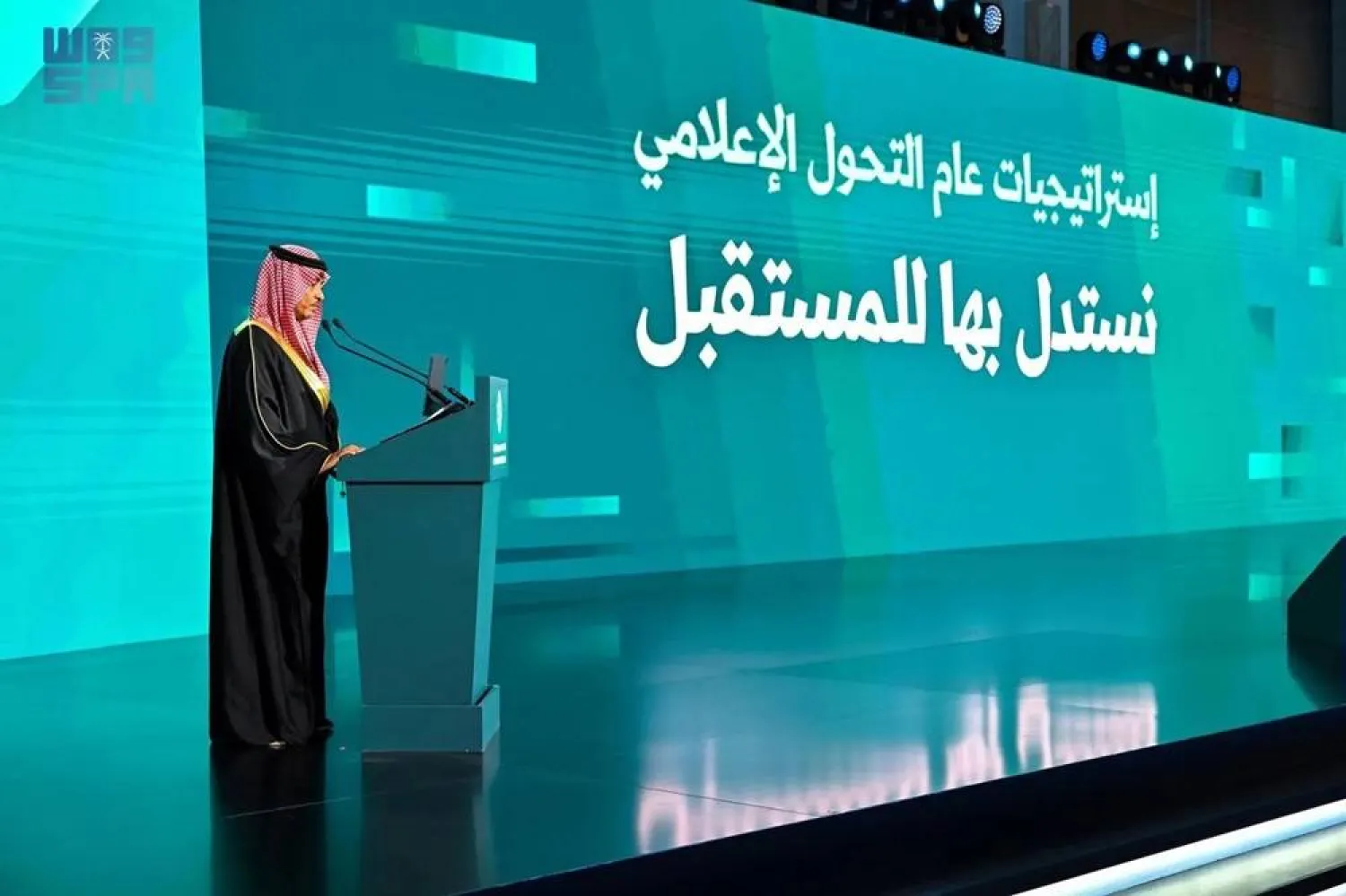Saudi Minister of Media Salman bin Yousef Al-Dosary expressed on Tuesday optimism about the future of Saudi media, anticipating numerous achievements and transformations across all sectors.
He outlined key strategic aspects of the media system for the upcoming year, detailing various projects and programs set to bring these features to fruition, while announcing 2024 as the "Year of Media Transformation."
"Today, we unveil the strategies for the Year of Media Transformation in the Kingdom, based on four pillars: figures, indicators, passion, and work, guided by a wise vision from the Custodian of the Two Holy Mosques and led by Crown Prince," said Al-Dosary at the opening session of the Saudi Media Forum 3 in Riyadh.
The event was attended by over 2,000 media outlets from within and outside the Kingdom.
Al-Dosary said the Saudi media industry has contributed SAR14.5 billion to the GDP in 2023, projecting an increase to SAR16 billion this year. He emphasized the industry's investment in human capital, which generated 56,000 employment opportunities last year, with expectations to reach 67,000 this year.
He presented three implemented strategies serving as a roadmap for the future of media, fortifying the sector, increasing investment attractiveness, and improving the effectiveness of national cadres. These strategies involve collaboration with over 30 government institutions, shaping the comprehensive strategic direction of the Kingdom's media system.
Al-Dosary discussed the Saudi Broadcasting Authority’s (SBA) strategy, aiming to expand the Authority, enhance business competitiveness, nurture media professionals and talents, and produce outstanding content for international digital platforms. He also highlighted the Saudi Press Agency's (SPA) strategy, focusing on improving its global network, offices, and correspondents while aligning media content with public expectations and contemporary developments.
Additionally, the minister spotlighted noteworthy projects, including the "Media Oasis" coinciding with the Kingdom's participation in major summits and events. This initiative engaged over 2,600 journalists from 60 countries, providing insights into more than 30 national projects. Initiatives, like the "Mediazone", have completed their work or are in the process of developing new editions to stay aligned with creative advancements in media arts and expertise.
Al-Dosary emphasized the significance of the Hajj and Umrah seasons, highlighting the recent launch of the "Hajj and Umrah Mediathon" project. This initiative encourages interested parties and media professionals to compete in developing media initiatives and projects promoting innovative and creative media coverage.
He also announced the initiation of the "Hajj Media Hub" project, aiming to establish an integrated media community and environment to assist media professionals in their coverage. Additionally, there will be an interactive media exhibition showcasing services during the Hajj season. The minister disclosed an anticipated outreach to more than 2,000 media professionals and international visitors.
Moreover, Al-Dosary announced the establishment of the Saudi Media Academy that aims to empower, develop, and train individuals in future disciplines. It also aims to form early and innovative strategic partnerships with major technology companies and global media platforms such as Google, Huawei, Alibaba, and others.
Following the minister's remarks, President of the Saudi Media Forum and Chairman of the Saudi Broadcasting Authority (SBA) Mohammed Al-Harthi delivered a speech highlighting a comprehensive development renaissance witnessed by the Kingdom at all levels and fields. He emphasized that the media serves as a mirror reflecting global changes.









